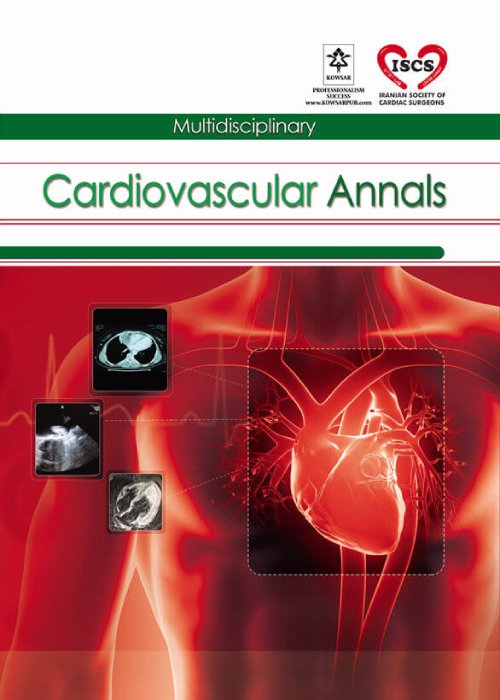Impact of Procaine Hydrochloride Versus Lidocaine in Cardioplegic Solution, on Reperfusion Arrhythmia During Coronary Artery Bypass Graft Surgery
Author(s):
Article Type:
Research/Original Article (دارای رتبه معتبر)
Abstract:
Background
The best way to reduce the occurrence of arrhythmias that generally occur after an open heart surgery is to improve the quality of myocardial protection against reperfusion damage during the cross-clamp time. In this regard, different cardioplegic solutions play a key role. Differences in the types and contents of cardioplegic solutions may lead to different results of effective protection of the myocardium. The purpose of this study was to compare the effects of the newly introduced procaine hydrochloride (PHC) containing cardioplegic solution (Shahid Ghazi Pharmaceutical Co. Tabriz, Iran) and lidocaine (L) in cardioplegic solution on post aortic clamp arrhythmia in coronary artery bypass graft surgery.
Methods
This study is a randomized clinical trial that was performed in Rajaie cardiovascular, Medical and research center after obtaining permission from the ethics committee. A total of 100 patient candidates for coronary intervention from October 2016 to March 2017 were divided into two groups and randomly assigned one of the two cardioplegic solutions that were only different in the antiarrhythmic solution contents of procaine hydrochloride and lidocaine. After aortic de-clamp during post ischemic time, spontaneous sinus rhythm return, post-operative arrhythmia, and the dosage of lidocaine, magnesium and inotropic drugs, or the use of defibrillator and pacemaker in the operating room or the intensive care unit have been investigated.
Results
After aortic de-clamp, in the PHC group, the spontaneous return of heart rate was higher (P value = 0.02, 64% for PHC and 42% for L group). Furthermore, the required dosage for lidocaine and magnesium (P = 0.02) and inotrope (P = 0.04) were also relatively lower, but in general, the percentage of arrhythmia occurred requiring defibrillator and pacemaker after operation between the two groups did not show any significant differences. Clinically, the required cardioplegic solution volumes were slightly higher in PHC group.
Conclusions
Although the cardioplegic solution containing procaine hydrochloride is effective in protecting myocardium during non-complex surgeries to spontaneously reverse the heart rhythm, it does not have any significant effects on decreasing arrhythmia after aortic de-clamp and is not preferable to the cardioplegic solution containing lidocaine. Obviously, the definitive result depends on the repetition of the results based on similar clinical studies, with more patientsKeywords:
Language:
English
Published:
Multidisciplinary Cardiovascular Annals, Volume:9 Issue: 2, Jul 2018
Page:
4
magiran.com/p1873363
دانلود و مطالعه متن این مقاله با یکی از روشهای زیر امکان پذیر است:
اشتراک شخصی
با عضویت و پرداخت آنلاین حق اشتراک یکساله به مبلغ 1,390,000ريال میتوانید 70 عنوان مطلب دانلود کنید!
اشتراک سازمانی
به کتابخانه دانشگاه یا محل کار خود پیشنهاد کنید تا اشتراک سازمانی این پایگاه را برای دسترسی نامحدود همه کاربران به متن مطالب تهیه نمایند!
توجه!
- حق عضویت دریافتی صرف حمایت از نشریات عضو و نگهداری، تکمیل و توسعه مگیران میشود.
- پرداخت حق اشتراک و دانلود مقالات اجازه بازنشر آن در سایر رسانههای چاپی و دیجیتال را به کاربر نمیدهد.
In order to view content subscription is required
Personal subscription
Subscribe magiran.com for 70 € euros via PayPal and download 70 articles during a year.
Organization subscription
Please contact us to subscribe your university or library for unlimited access!


